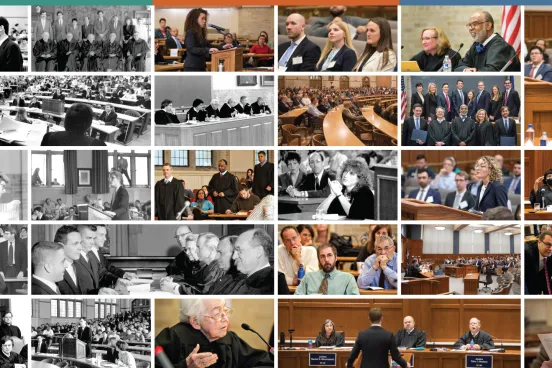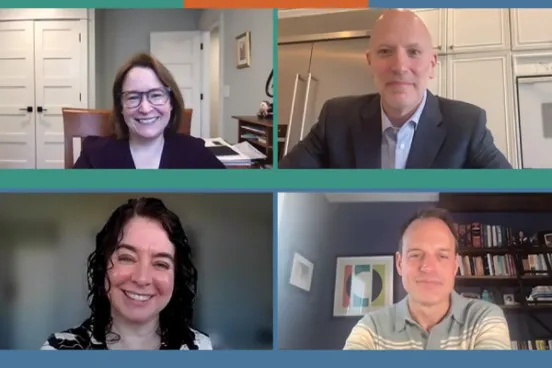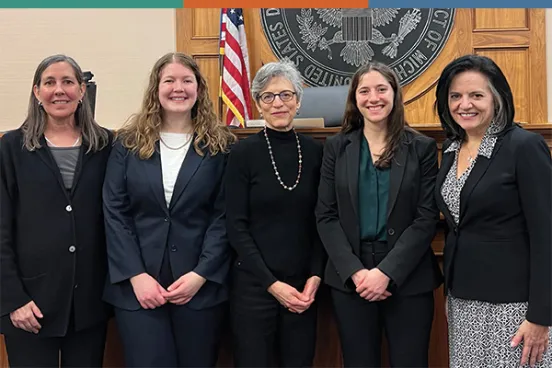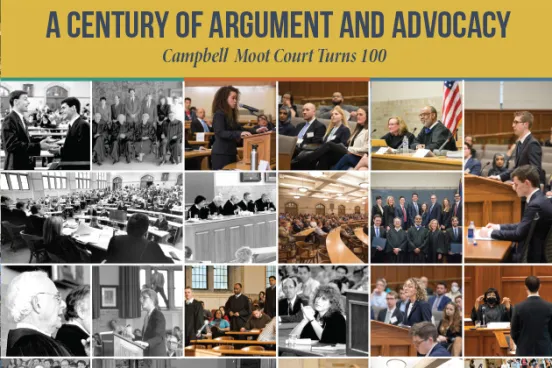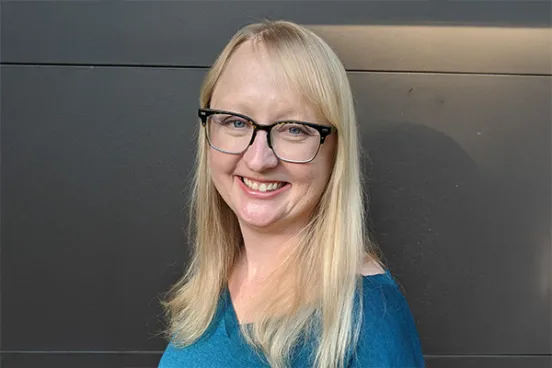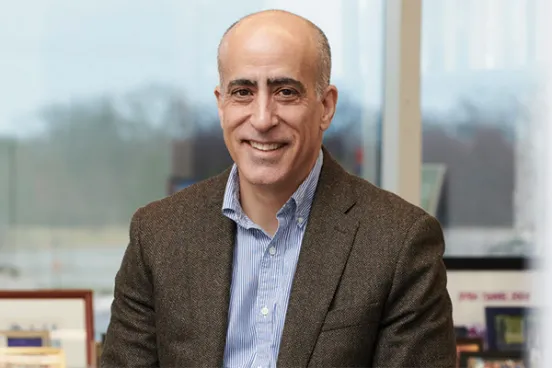When Jason Levien, ’97, arrived in Ann Arbor to pursue a dual degree in law and public policy, he did not envision a future in professional sports. Although Levien played basketball at Pomona College, he assumed his sporting career had ended with his time as a Sagehen.
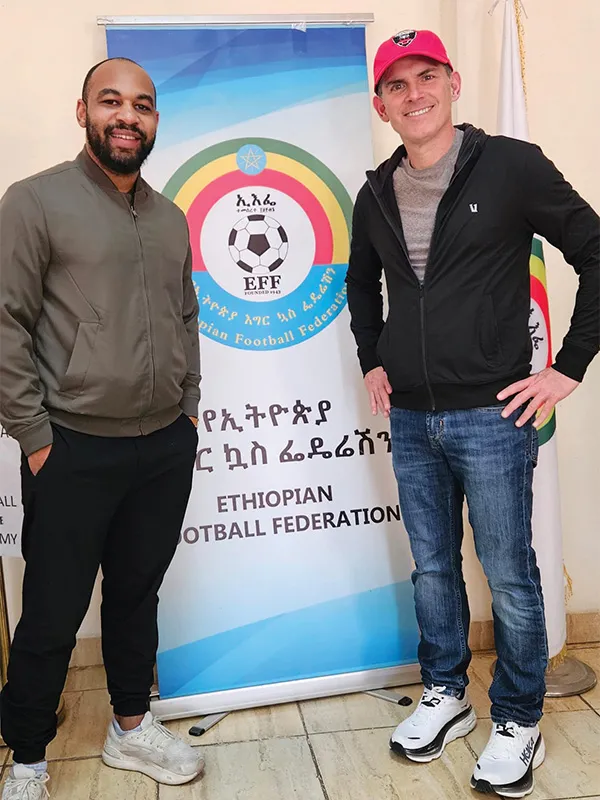
Yet he was barely a year into private practice when a minor legal dispute between a professional basketball player and his wedding caterer set Levien on a journey that would lead him to found his own sports law firm—and to his involvement in the acquisition and leadership of multiple professional sports franchises.
Today, Levien is co-chairman and CEO of D.C. United, a Major League Soccer (MLS) team, which he and a group of investors acquired in 2012. He works alongside fellow Michigan Law alumnus Chris Burtley, ’15, who joined the team in 2023 and serves as his chief of staff and the team’s vice president of strategy.
An unexpected path to the front office
After graduating from U-M, Levien clerked for the Hon. Diana Gribbon Motz on the US Court of Appeals for the Fourth Circuit and then joined the Washington, DC, office of Williams & Connolly.
“At the firm, I thought I would learn a lot, potentially get some trial experience, and then decide if I wanted to transition into either government policy work or academia,” he recalls.
As it happened, the firm had a very small sports practice, and Levien soon became what one partner described as “the assistant general counsel for minor matters” for the firm’s sports clients. One case led to others; he began helping with contract negotiations, and sports became a large part of his practice.
Eventually, Levien struck out on his own and founded a firm representing athletes, with a particular emphasis on growth overseas, both by representing American athletes in foreign leagues as well as international talent playing in the States.
“I always had a strong interest in the connectivity between sports and culture and the way it can bring people together,” Levien says. “That goes back to high school, when I went on a trip with a basketball team to the Soviet Union. This was during the Cold War, and we were staying in kids’ houses and playing against local clubs. I saw how sport can be a common language, and I have really carried that with me over the years.”
Although he found satisfaction and success building his firm, Levien was intrigued when an opportunity with the Sacramento Kings NBA team arose. He decided to sell his company and take a role in the front office.
“The economics of the remuneration with the Kings was less than my business, but I wanted that connectivity to a team, and I was long-term focused on what I was passionate about and new experiences in life,” he says.
Levien’s time in Sacramento deepened his understanding of professional basketball and how to effectively run a franchise, and eventually led to his involvement in the acquisition and management of two teams, first with the Philadelphia 76ers and then the Memphis Grizzlies.
Another opportunity came knocking when a close friend and business partner—Indonesian businessman Erick Thohir, who became the first Asia-based investor in an NBA team when Levien brought him into the group that acquired the 76ers—suggested they consider investing in a soccer team together.
Jason Levien, ’97Winning matters, of course. But we define success by how many lives we can touch, how many communities we can bring together to help grow this beautiful game.
Building anew in DC
When Levien and the investment group acquired D.C. United in 2012, the team was no longer among the powerhouse franchises as it was in the early years of the MLS. The team hadn’t been to the playoffs in more than five years, and its 50-year-old home field, the Robert F. Kennedy Memorial Stadium, was on its last legs.
Levien saw an opportunity not just to restore the team’s competitiveness, but to invest in a more central stadium that would be home to the world’s most popular sport in one of the most international cities in the world. It was such a priority that Levien went from the press conference to the mayor’s office—literally.
“Within a year we had signed a term sheet, but it took many more years of planning and negotiations with zoning and neighborhood meetings to get to a final build,” he says. “My law and public policy background helped, and I leaned heavily on building relationships. We had to gain the trust of elected and non-elected government officials, other private interests like developers, and people in the neighborhoods near the stadium.”
Audi Field opened in 2018 in the Buzzard Point neighborhood of Washington, DC—a former industrial zone that has become one of the densest and fastest-growing neighborhoods in the city. Like the neighborhood itself, Audi Field has continued to evolve, and in early 2025, the team announced intentions to add additional seats.
If the success of the Audi Field project reflects Levien’s commitment to intentional partnerships, it is fitting, then, that it was a longtime friendship that brought Chris Burtley and Levien together.
Chris Burtley, ’15[Long-term strategy is] critically important—it’s all the things that you may not have time to think about day to day, but you have to carve out time for it.
Strategic collaborations
Burtley’s pivot into a career in sports happened when he was working as of counsel at Barnes & Thornburg LLP, where he was mostly practicing supply chain law. Then came a call from childhood friend and Heisman Trophy winner Mark Ingram, whom Levien had approached about taking a minority ownership position in D.C. United.
Burtley represented Ingram in the successful negotiations, and his relationship with Levien grew from there. Eventually, Levien asked him to join the organization—but rather than a strictly legal role, Burtley would be involved across the organization.
“I have my hand in some legal matters, but I am working with every department, and I love the diversity of issues I get to work on,” Burtley says. “The strategy side of things felt a bit abstract when I first joined, but it’s critically important—it’s all the things that you may not have time to think about day to day, but you have to carve out time for it.”
That mindset helped lead to one of D.C. United’s recent partnerships: a collaboration with the Ethiopian Football Federation and the Ethiopian Premier League. The DC area is home to hundreds of thousands of Ethiopians, and the partnership was facilitated by co-owner Eyob Joe Mamo, a prominent DC-area businessman who was born in Ethiopia and joined the team’s ownership group in 2021.
“We spent time in Addis Ababa and connected with two of the top teams there, and we ultimately brought those teams to the US for the first time, and they played an exhibition match at Audi Field last year,” Burtley says. “And we signed a player from Ethiopia as well. So the strategy side of my job is about making connections to help the business grow in ways that might not be clear now, but in a year or two or three, you see the momentum grow and it can have real impact.”
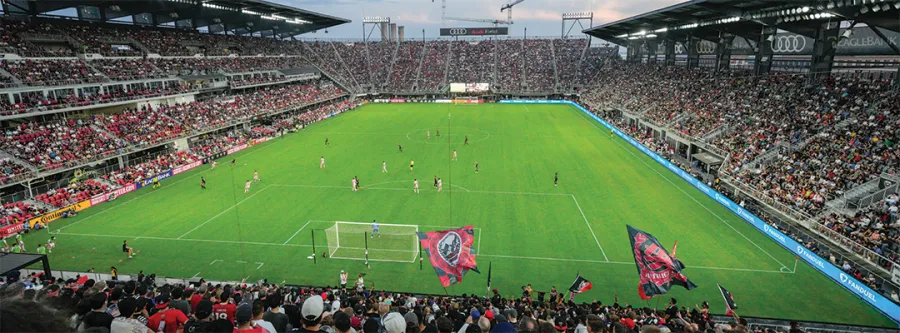
Growing the game
Back home, Levien and Burtley continue to evolve D.C. United. Beyond expanding Audi Field, the organization launched a professional women’s team, D.C. Power, and is focused on player development and working to improve the team and the experience for fans.
The organization also is investing in community outreach in the broader Washington Metro area. This includes a training facility in Virginia where it provides scholarships to rising stars, most of whom go on to receive college scholarships. (Outstanding recruits are signed professionally, some as young as 15 years old.)
The team also has partnered with the US Soccer Foundation to build mini-pitches in the city, which are smaller than a proper soccer pitch and designed for pick-up games. It is looking to expand the program to Baltimore.
All of these efforts speak to the deeper purpose that Levien and Burtley see in their work.
“Winning matters, of course,” Levien says. “But we define success by how many lives we can touch, how many communities we can bring together to help grow this beautiful game.”


